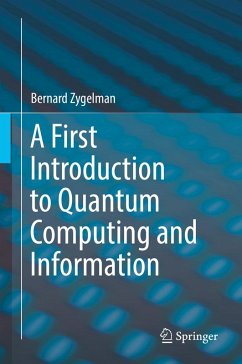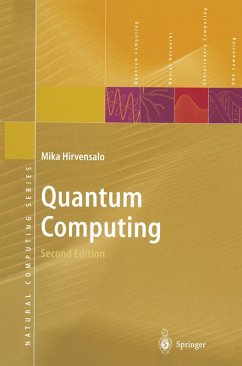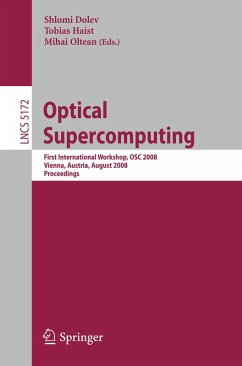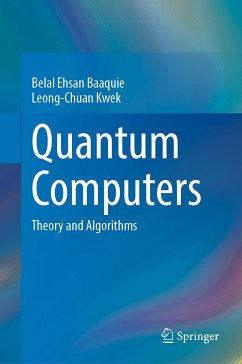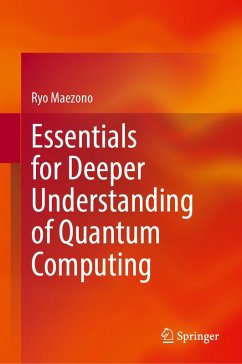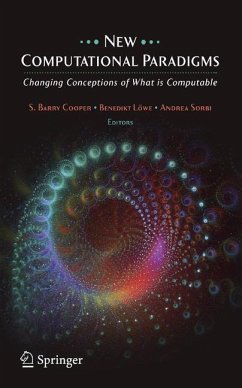
An Introduction to Quantum Computing Algorithms (eBook, PDF)
Versandkostenfrei!
Sofort per Download lieferbar
56,95 €
inkl. MwSt.
Weitere Ausgaben:

PAYBACK Punkte
28 °P sammeln!
[see attached for complete text] Over the last decade quantum computing has become a rapidly growing field with relevance to topics from physics, mathematics, and computer science. Aimed at engaging the mathematically literate reader who may not have a background in all of the subspecialties of the field, this work will provide the context for understanding and developing algorithms for a "prospective" quantum computer. Key features include: * clear and concise exposition, * minimal prerequisites, * detailed overview of the historical context of quantum computing, * discussion of the most rece...
[see attached for complete text] Over the last decade quantum computing has become a rapidly growing field with relevance to topics from physics, mathematics, and computer science. Aimed at engaging the mathematically literate reader who may not have a background in all of the subspecialties of the field, this work will provide the context for understanding and developing algorithms for a "prospective" quantum computer. Key features include: * clear and concise exposition, * minimal prerequisites, * detailed overview of the historical context of quantum computing, * discussion of the most recent developments, including the factoring algorithm of
Dieser Download kann aus rechtlichen Gründen nur mit Rechnungsadresse in A, B, BG, CY, CZ, D, DK, EW, E, FIN, F, GR, HR, H, IRL, I, LT, L, LR, M, NL, PL, P, R, S, SLO, SK ausgeliefert werden.



